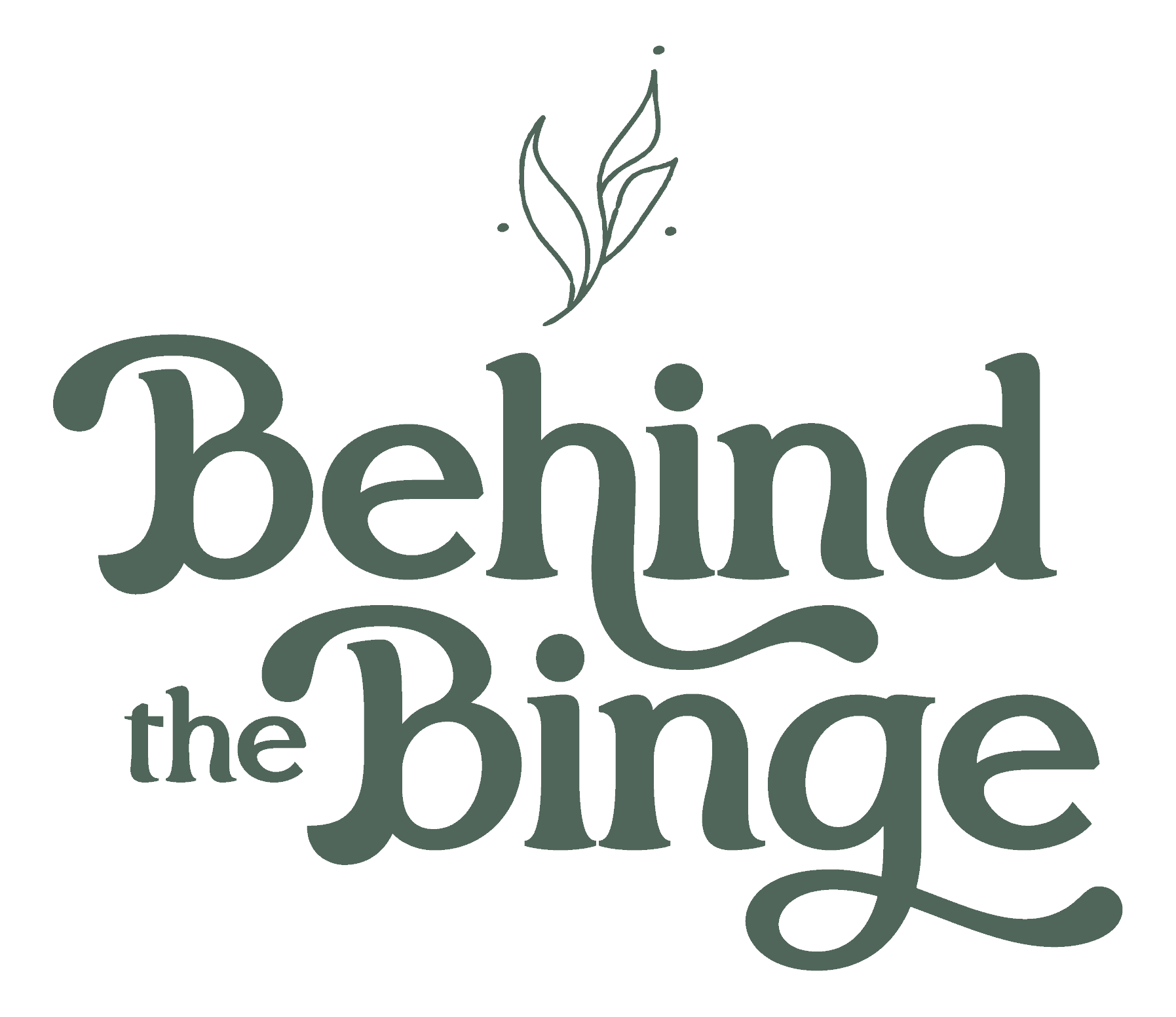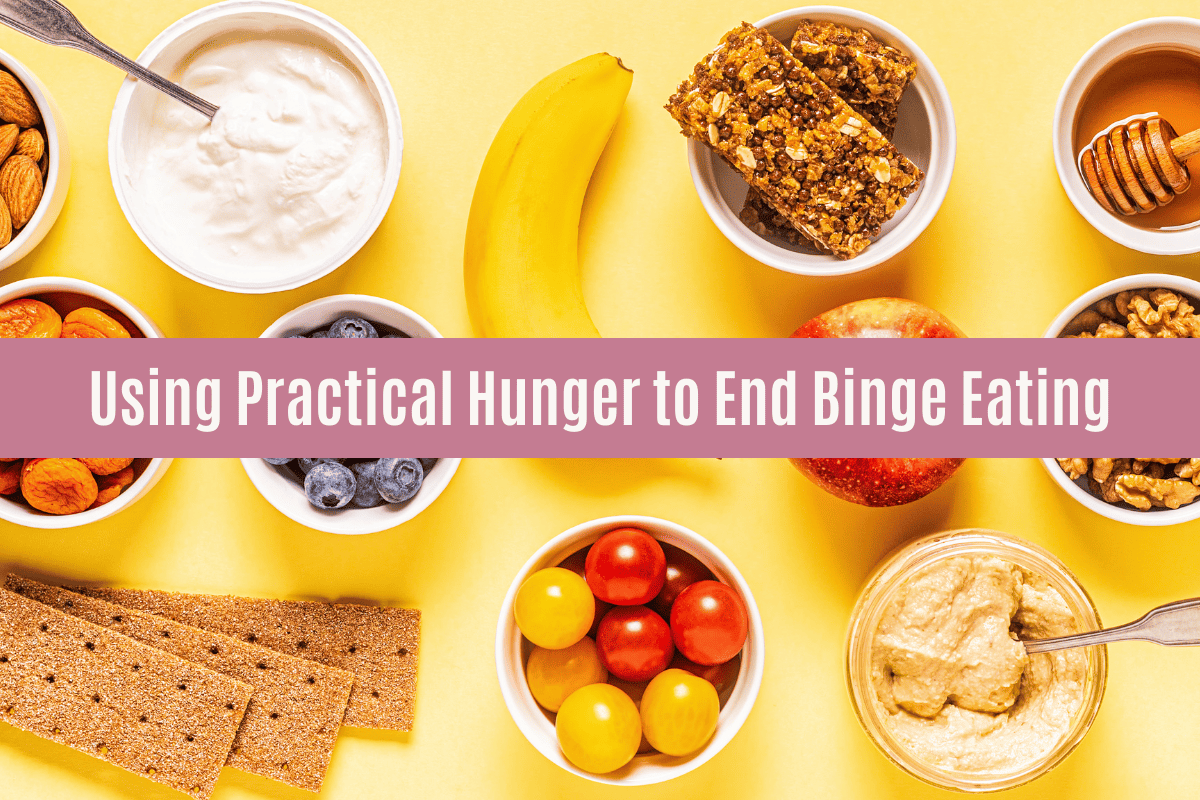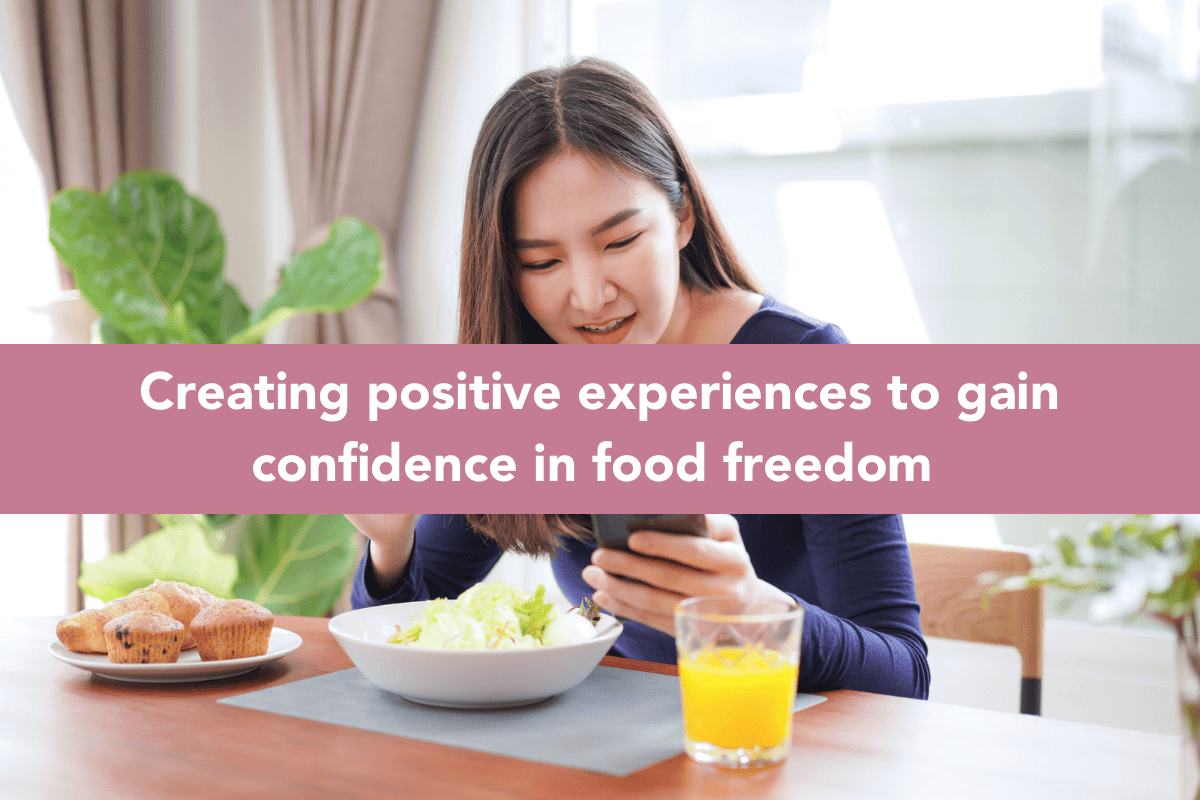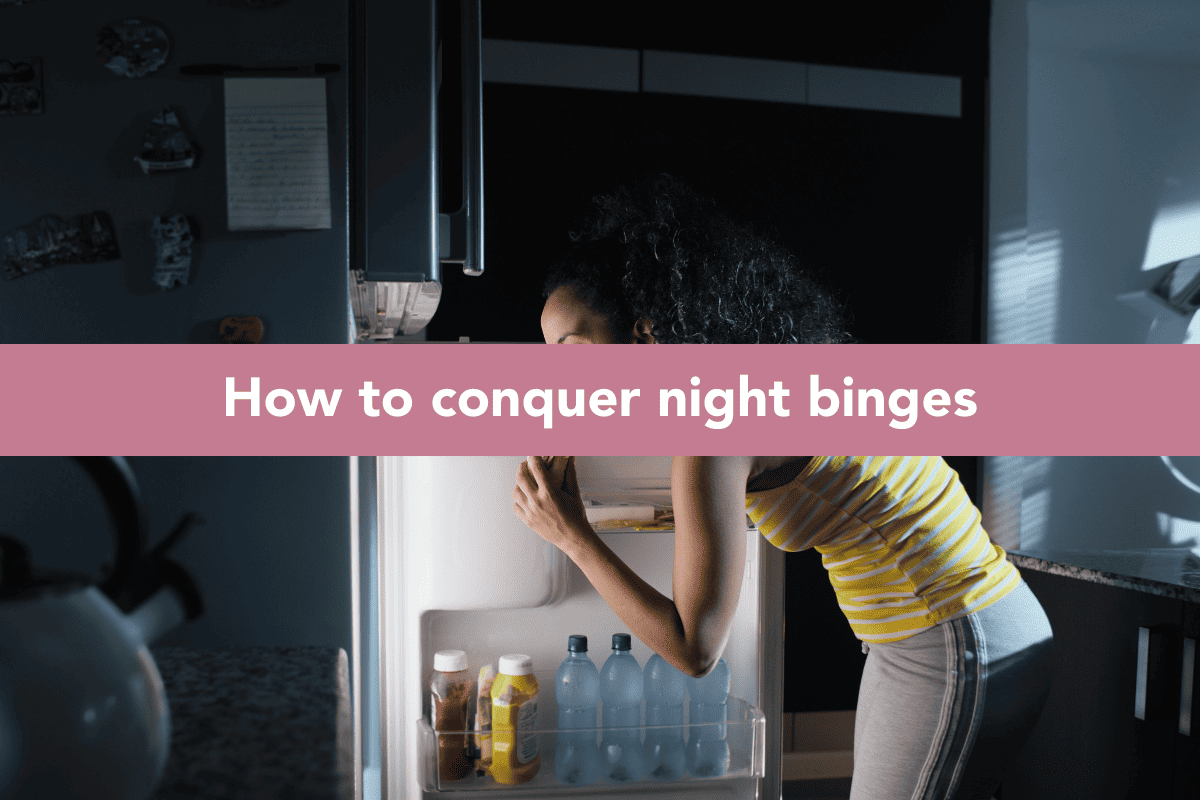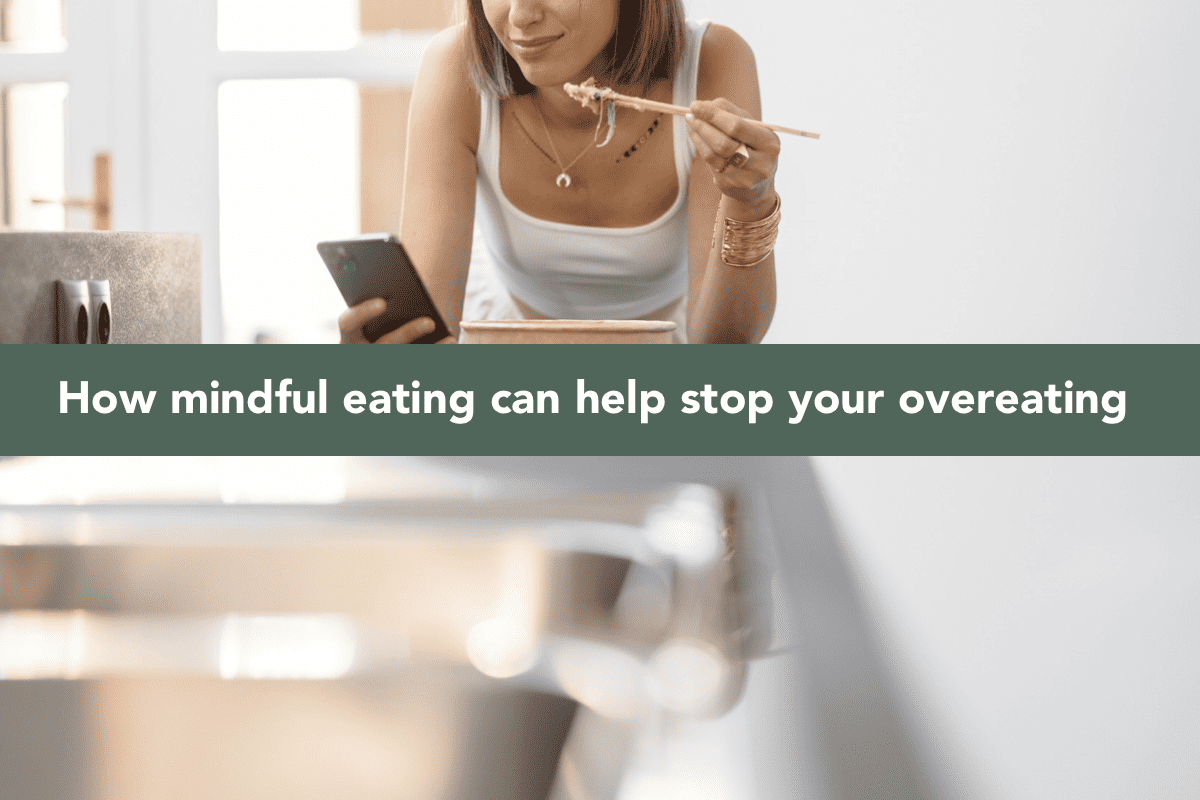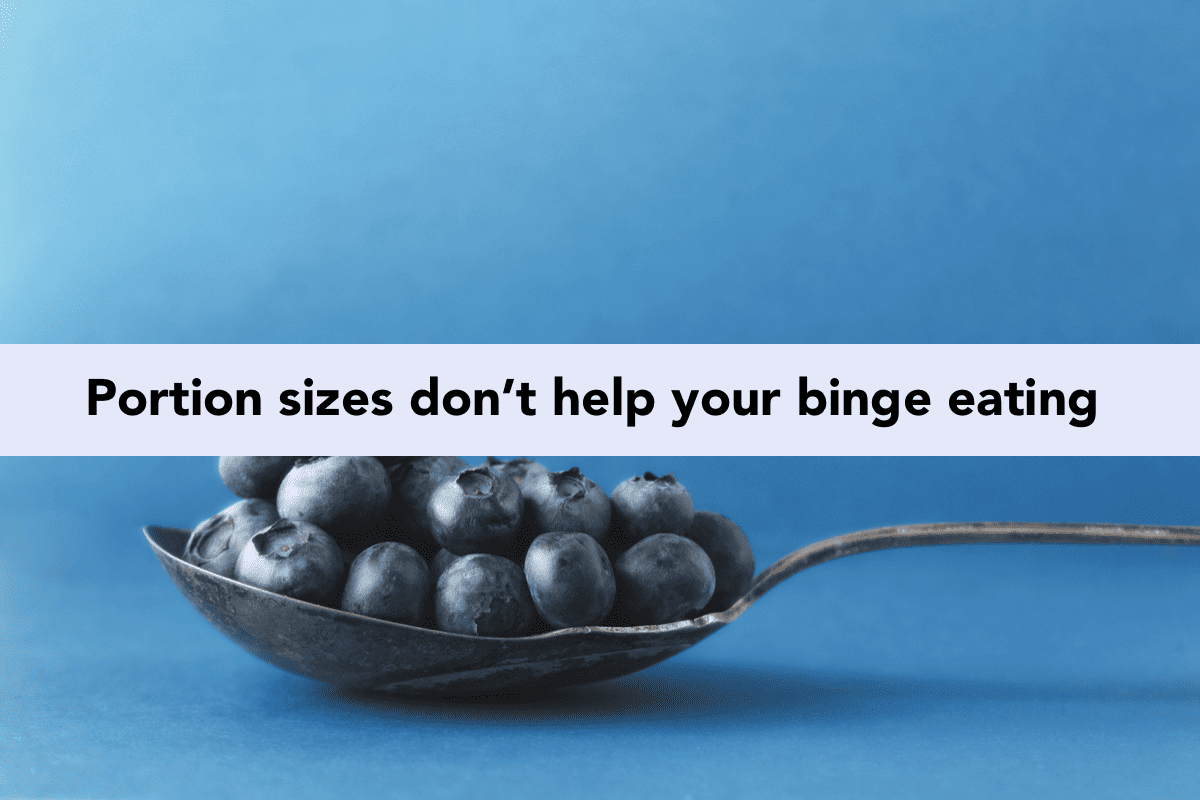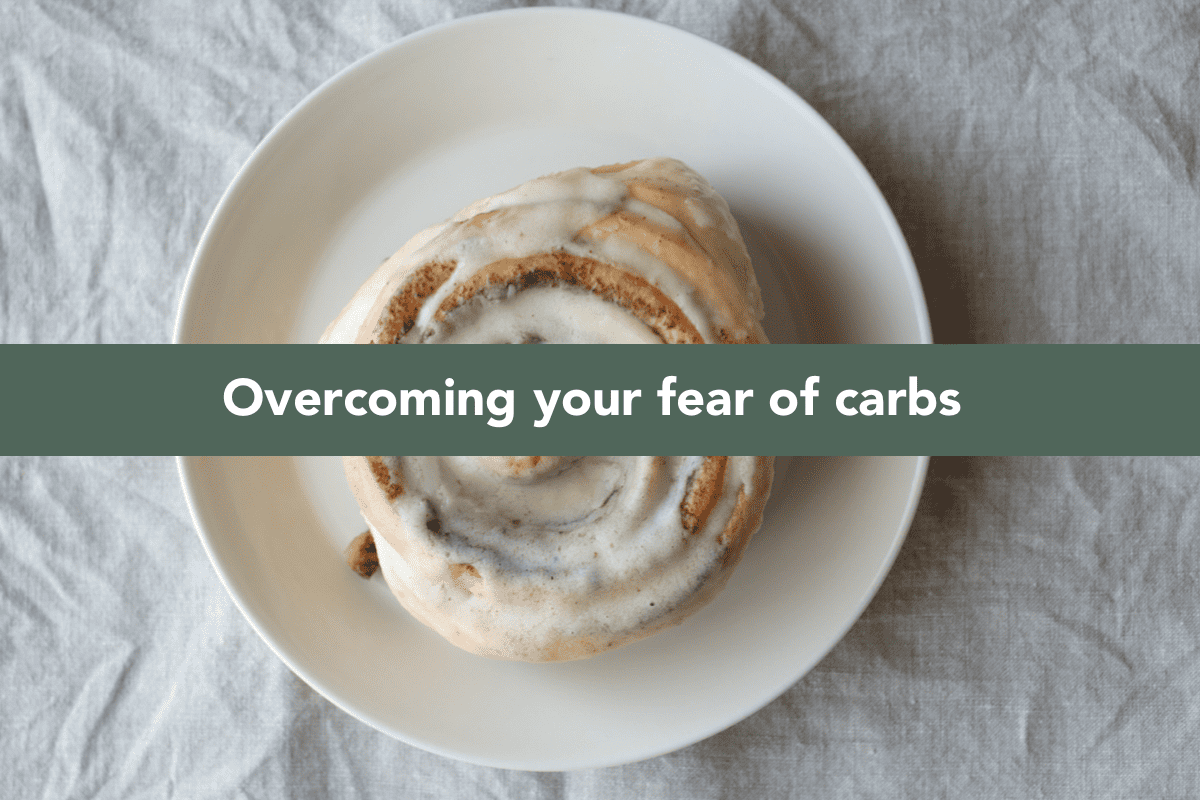Practical hunger is eating when you aren’t necessarily hungry in order to prevent discomfort of being overly hungry later and unable to eat. I often get asked the question “how do I eat intuitively with work/home/family schedules?” This is the solution within intuitive eating. While it would be wonderful to have the access and availability to eat whatever you want whenever you want, most of us do not have that privilege due to work, kids, hobbies and other things we fill our schedule with.
Practical hunger is an act of self care to nourish your body now, so you don’t feel uncomfortable later and/or as an act of self care. This can be super important in binge eating recovery because it prevents you from being over hungry and making your body feel restricted again, which are often triggers for binges.
Some examples of when practical hunger may be necessary include:
- Not being able to feel hunger cues due to disordered eating recovery
- Needing to take a medication with food
- Not feeling hungry in the morning for breakfast, but not having an opportunity to eat until lunch
- Getting ready to start a workout and needing to fuel your body for that exercise
This is certainly not an all inclusive list, but the point is being able to fuel your body to nourish it.
Something I see with a lot of clients recovering from disordered eating is not being able to feel hunger cues. This often happens after a long period of restriction, when you ignored them for so long your body stopped wasting energy on creating them. These hunger cues can return or may look different than you expect, which might need further investigation, but in the meantime, taking care of yourself by fueling your body is important in recovery to gain back body trust.
This is often why people think they are eating enough, but really are not. They have just been in restriction for so long they do not sense their hunger cues.
So yes, practical hunger can mean eating when you aren’t hungry and that’s okay. Intuitive eating is not a hunger/fullness diet, it’s an act of self care to nourish your body the best way you know how.
Another very common example of practical hunger is adding a snack into your afternoon at work so you don’t feel overly hungry at dinner. Often I hear clients talk about how stressed and busy they are at work and then once they get home they want to eat everything in sight. Now, while there may be underlying emotions to be handled in this situation, they also may not be noticing hunger cues because it is masked by the body’s response to stress. So having a snack in the afternoon may help them feel more in control for dinner or after dinner.
Now as you can tell this can be very individualized from person to person based on schedules, energy needs, exercise, and coping mechanisms. A good general rule is to make sure you are eating consistently throughout your day. If you are going 4 or more hours without eating it could be worth experimenting with. If you do choose to add in a snack, pay attention to how you feel during your day.
Does an evening snack help you sleep more soundly? Does taking the time for breakfast in the morning prevent your afternoon crash?
